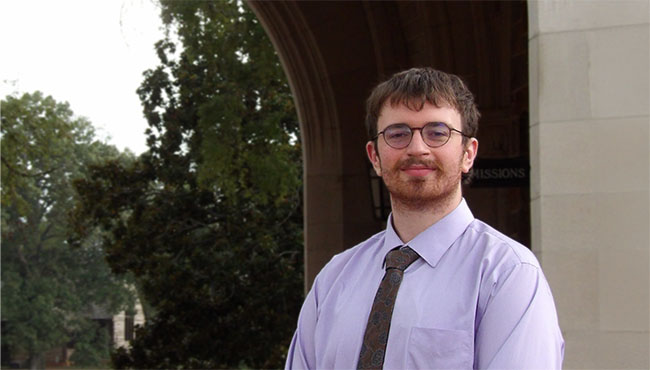If you are planning to study nursing in college, get the facts about different program options. Not all nursing programs are created equal. Nursing students can come away from schooling with drastically different levels of licensure, preparation and ability for career mobility. If you are interested in a career in nursing, find a program that not only meets your educational needs but also offers a supportive, student-centered environment. Learn more about the differences with this guide to decide what’s right for you.
What are the options?
There are several options when choosing a nursing degree or a path to taking the NCLEX-RN exam and becoming a registered nurse (RN). Some students, looking for a low-cost option or streamlined timeline, choose an associate degree (ADN) in nursing. This degree typically takes two to three years and focuses on the technical aspects of nursing. An ADN degree may cost less upfront but comes with fewer job offers, less career mobility and often a lower salary. In contrast, a Bachelor of Science (BSN) in nursing requires four years of coursework but comes with more comprehensive preparation and better career opportunities from the get-go.
The value of student-centered learning
To get the most bang for your buck, look for a nursing program with these characteristics. The best nursing programs will invest in their students' success from day one.
A student-focused selection process
Many colleges tout the rigor of their nursing school. They warn pre-nursing students they might not get into the nursing program even if they meet all the eligibility requirements. Although it makes programs sound prestigious, the reality is these schools are allowing only a certain number of seats because they aren’t willing to budge on their nursing program spending. But at some colleges, all nursing students who are qualified applicants and meet the prerequisites can become nurses.
Student-centered programs are less interested in creating exclusivity. Instead, they are invested in helping every capable student fulfill their potential. In addition to making space for all students, some colleges use a portion of their budget to invest in students they believe are headed for success. For example, at Berry College, a high percentage of undergraduate students receive institutional aid, and specific scholarships are available for nursing students.
Mentoring from day one
When searching for a nursing school, seek out institutions where faculty and staff are genuinely interested in their students' success. Some schools give nursing students a generic advisor until a student officially joins the nursing program in junior year. In contrast, other schools begin connecting nursing students to faculty as soon as they step foot on campus. For example, some schools utilize first-year seminar courses tailored to nursing majors. In these instances, nursing students connect directly with nursing faculty right away.
At Berry, the nursing program says that behind every successful Berry nurse stand faculty dedicated to supporting student coursework and advising on post-grad professional development. At this type of institution, students also have the opportunity to collaborate with a mentor on research projects related to evidence-based care. The opportunities are endless.
Graduation in 4 years or less
There’s no single entry point or path to a BSN. Students need to be met where they are, so each has the same chance to succeed. When looking for the right nursing program, consider whether a college or institution can meet all your expectations. Identify institutions where nursing faculty prioritize providing a holistic and well-rounded educational experience. Look for places that ensure students can be involved in extracurriculars like theatre, sports, study abroad, language fluency development or research projects if they choose to do so. Whether students enter on the traditional four-year track, on an accelerated 3.5-year track or through transfer from another college, faculty advisors should be prepared to help students navigate and plan out their long-term plans.
Clinical experiences and opportunities for employment
Clinical experience is integral to the student experience but also costly for many schools to provide. Many states do not require a set number of hours and thus schools save money by reducing hands-on experience opportunities. When looking for the right nursing school, consider the number of clinical hours and the types of clinical rotations you will experience. Consider where local hospitals are in relation to the school and ask questions about the medical partnerships between the college and the community.
At Berry College, our nursing students receive over 730 hours of direct patient interaction, through rotations in intense hospital environments, outpatient clinics and community-based settings. Students receive a broad range of experiences from ICU and maternal child to addiction recovery and elder memory care.
In addition, just five minutes from Berry’s campus is the hub for health care in northwest Georgia, including two hospital partners with a per capita physician rate that exceeds the national average. After completing the first semester of the nursing program, many students are eligible for a paid nurse tech position and supplement their nursing clinicals with paid positions in the local hospitals and clinics. Some employers who hire Berry graduates even apply these as years of service toward employee benefits. Having a high-quality experience with a paycheck works to your advantage.
A program focused on service
Many students who choose nursing careers are deeply invested in serving others. With service-learning opportunities, nursing students can not only practice necessary medical skills but also gain perspective and empathy in situations that are unlike their own. Reflective writing tools such as personal digital portfolios allow students to critically think about and connect these experiences to classroom knowledge. It also prepares them for the interview process with potential employers.
For example, at Berry, nursing students have the opportunity to serve patients abroad. Every summer, a group travels to Kenya to work with underserved populations in clinical settings. Building awareness of health care in other cultures provides insight into global health and proves useful to practice in the U.S. with its growing cultural diversity.
A competitive advantage with a liberal arts degree
It is no surprise that nurses with liberal arts degrees are often valued by their employers for their skills beyond technical knowledge. Communication skills required of liberal arts graduates strengthen interactions with managers, team members, patients and families. Social science courses also enhance graduates’ ability to understand context, behavior and attitude of patients from diverse backgrounds. Finally, nurses with a grounding in research know how to assess situations and recommend changes — also applicable to future leadership roles where they change policy and affect practice for the better.
Carolyn Reilly, director of the division of nursing at Berry College, says, “The most appropriate course of undergraduate nursing education is a liberal arts education. Nurses need to be well-rounded, and a liberal arts education provides this background. In these first years, nursing students also receive the prerequisites they need like anatomy, physiology, nutrition, psychology and microbiology.”
Give it a shot
Choosing the right nursing program is a significant decision that will shape your future. When visiting schools and meeting admissions counselors, look for programs offering a comprehensive, student-focused education. Keep in mind the different opportunities that prepare graduates for success in health care. From personalized mentoring and significant clinical hours to service-learning opportunities and a comprehensive curricular foundation, liberal arts colleges can provide a well-rounded experience that equips students with the skills and knowledge they need to excel in the nursing profession.



